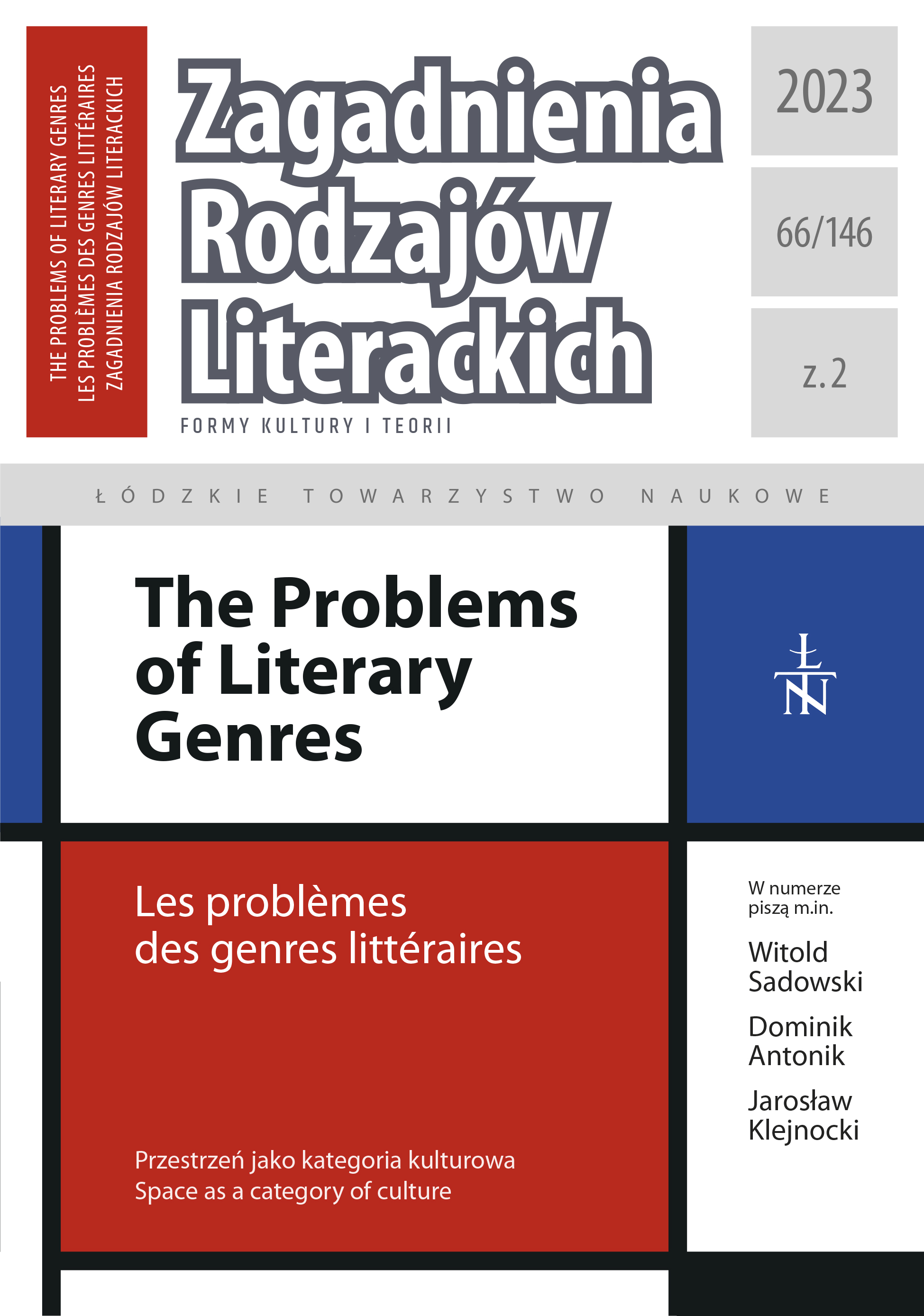Przestrzeń i jej kulturowe reprezentacje
Od Redakcji
DOI:
https://doi.org/10.26485/ZRL/2023/66.2/1Słowa kluczowe:
the spatial turn; geopoetics; geoaesthetics; humanistic and cultural geography; autogeobiography; topocentric historyAbstrakt
The text concerns the consequences of the appearance in the humanities of a phenomenon called the “spatial turn”, which is one of the aspects of the cultural turn. It is a subject of unwavering interest amongst researchers and is broadly understood as an experience of space inhabited and traversed, close and distant, familiar and foreign, open and closed, real and imagined, visually and remembered. Problems related to recording such an experience and its interpretation have prompted those practicing such reflection to look for new methodologies within interdisciplinary studies developed at the intersection of literary studies, cultural studies, geography, history and sociology. The consequence of such attempts is the emergence of new subdisciplines within various humanities. Such as, for example: geopoetics, geoaesthetics, humanistic and cultural geography, autogeobiography and topocentric history. The article also draws attention to the relationship between scientific research in this field and creative practice, mainly literary practice. A large part of the text is devoted to a review of the texts included in this issue of “The Problems of Literary Genres”/”Zagadnienia Rodzajów Literackich” and how they fit into the theoretical reflection under the sign of the spatial turn. The thematic scope here is wide and is not limited only to analyses of literary works. Several articles have been devoted to, for example, spatial film contexts
Liczba pobrań
Bibliografia
Augé Marc (2010), Nie-miejsca. Wprowadzenie do antropologii hipernowoczesności, przeł. R. Chymkowski, Wydawnictwo Naukowe PWN, Warszawa.
Bachelard Gaston (1975), Wyobraźnia i materia, przeł. A. Tatarkiewicz [w:] G. Bachelard, Wyobraźnia poetycka. Wybór pism, Państwowy Instytut Wydawniczy, Warszawa.
Bachtin Michaił (1977), Epos a powieść. O metodologii badania powieści, przeł. J. Baluch [w:] Studia z teorii literatury. Archiwum przekładów „Pamiętnika Literackiego”, red. M. Głowiński, H. Markiewicz, Zakład Narodowy im. Ossolińskich, Wrocław.
Certeau de Michel (2008), Wynaleźć codzienność: sztuki działania, przeł. K. Thiel-Jańczuk, Wydawnictwo Uniwersytetu Jagiellońskiego, Kraków.
Czermińska Małgorzata (2011), Miejsca autobiograficzne, „Teksty Drugie” nr 5.
Rybicka Elżbieta (2013), Auto/bio/geo/grafie, „Białostockie Studia Literaturoznawcze” nr 4.
Rybicka Elżbieta (2014), Geopoetyka. Przestrzeń i miejsce we współczesnych teoriach i praktykach literackich, TAiWPN Universitas, Kraków.
Rybicka Elżbieta (2015), Sensoryczna geografia literacka [w:] Przestrzenie geo(bio)graficzne w literaturze, red. E. Konończuk, E. Sidoruk, Wydawnictwo Uniwersytetu, Białystok.
Schlögel Karl (2009), W przestrzenie czas czytamy. O historii cywilizacji i geopolityce, przeł. I. Drozdowska, Ł. Musiał, Wydawnictwo Poznańskie, Poznań.
Szalewska Katarzyna (2017), Urbanalia — miasto i jego teksty, Słowo/obraz terytoria, Gdańsk.
Tokarczuk Olga (2012), Pstrąg w migdałach [w:] O. Tokarczuk, Moment niedźwiedzia, Wydawnictwo Krytyki Politycznej, Warszawa.
Tuan Yi-Fu (1987), Przestrzeń i miejsce, przeł. A. Morawińska, Państwowy Instytut Wydawniczy, Warszawa.
White Kenneth (2010), Poeta kosmograf, przeł. K. Brakoniecki, Centrum Polsko-Francuskie Côtes d’Armor — Warmia i Mazury, Olsztyn.
Pobrania
Opublikowane
Jak cytować
Numer
Dział
Licencja
Prawa autorskie (c) 2023 Łódzkie Towarzystwo Naukowe i autorzy

Utwór dostępny jest na licencji Creative Commons Uznanie autorstwa 4.0 Międzynarodowe.







